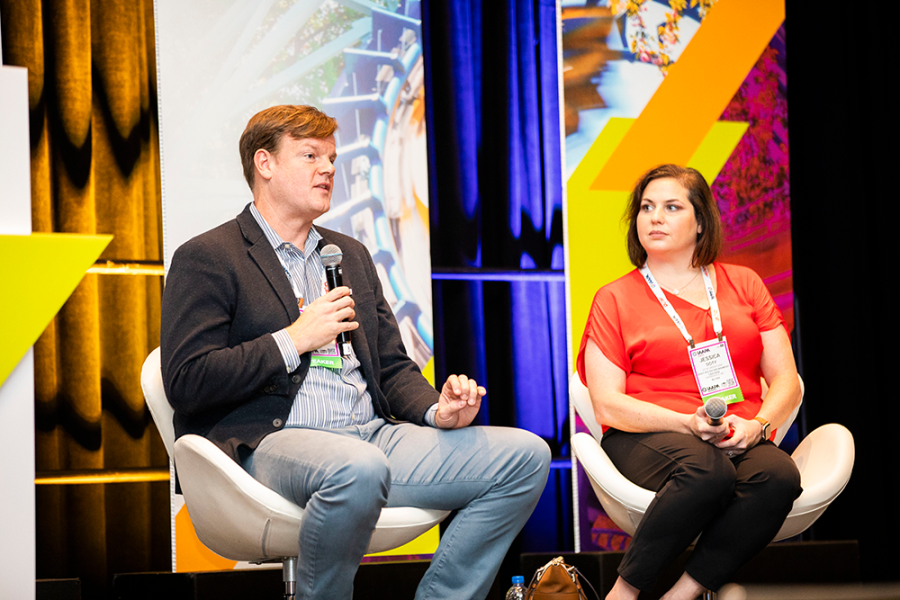FEC Arcades Experienced Significant Pandemic-Related Changes

Family entertainment center (FEC) executives led “FEC: Has the Pandemic Changed Arcade Strategies or Is It Back to Basics?”—an education session that examined these shifts and whether they are permanent.
Jessica Doty, vice president of operations with Andy B’s Bowling & Entertainment, said one obvious change when her company’s arcades reopened following the pandemic shutdowns was the consistent cleanings of games. Games that were side by side were shut down in order to allow for guest distancing. But she said it wasn’t permanent, as facilities are now back to normal and operating at full capacity.
Perhaps the most impactful change involved the loss of staff.
“One thing we learned was that we can do with less related to staff,” Doty said. “Our people did a lot of multitasking, and we made sure to keep our very best people.”
Howard McAuliffe, vice president of Pinnacle Entertainment Group, agreed that the greatest challenge since reopening has been acquiring and retaining staff. “It got better when the (U.S.) government supplements went away,” McAuliffe said. “But now, many people don’t show up after completing a job application, or they come to work and then quickly quit.”
He said he heard about an FEC that offered college students a bonus payment of $2 an hour at the end of the summer for every hour they worked if they stayed the entire summer.
McAuliffe said the additional costs related to paying more to acquire and keep staff, constant equipment sanitation, etc., necessitated raising prices paid by guests. But he noted, “We’ve tried to increase average spend per guest on game cards. With the cards, the higher prices to play particular games aren’t seen directly by guests. The money on the card is just reduced faster.”
Another way to increase revenue is to reduce game payouts, i.e., the amount players earn toward redemption prizes. But McAuliffe doesn’t think it’s a good idea since guests will notice that. He added, “If you do anything, do Christmas stocking stuffers with [redemption prizes]. Those are really popular.”
The session’s moderator, Todd Maunsell, vice president of operations for Cinergy Entertainment, said Cinergy’s locations gave people a choice about social distancing. “They showed us they just didn’t care to distance—they weren’t worried about it,” he said.
Another significant challenge the speakers discussed are the lengthy lead times in getting deliveries on new games and replacement parts. “We used to work on a 12-week timeline [for new game delivery], and now it’s six to seven months. I think this will continue throughout 2022, but after that, I think we’ll see things catch up.”
Before the session closed, all of the speakers agreed that due to labor shortages and the rapidly escalating cost of hiring employees, automation to replace staff is skyrocketing and will continue to do so. According to Maunsell, “With the labor shortage, we must automate wherever possible.”
